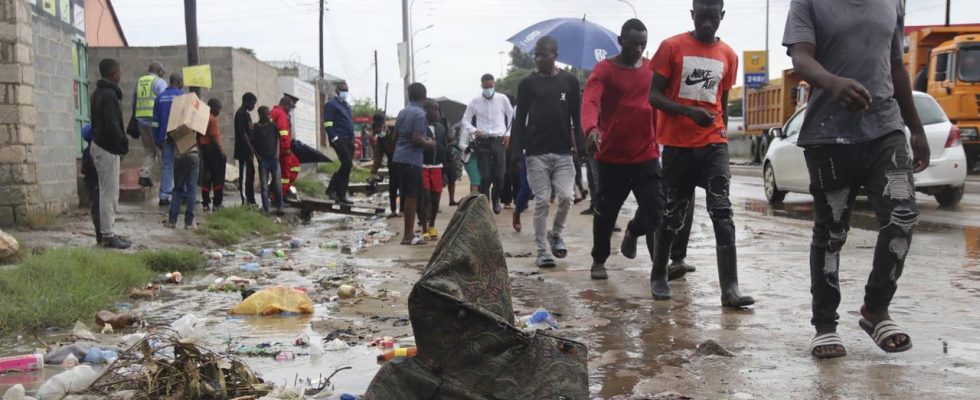Cholera has been rampant in the south of the African continent for several months. More than 200,000 cases have been registered, 3,500 people have died from the disease since then, and vaccines are on the way.
Malawi, Zimbabwe, Mozambique – cases of cholera are increasing, especially in the poorest countries in the region. Health experts say it hasn’t been as bad as it has been in the past three months for a long time. Since the outbreak began in autumn 2023, more than 200,000 cases have been registered and more than 3,500 people have now died from the disease.
Particularly worrying: the mortality rate in some countries is significantly higher than the usual value of less than one percent. In Zambia, for example, four percent of the 9,000 patients have not survived the disease, says doctor Paul Ngwakum, UNICEF health advisor for southern Africa. And more than half of those infected are children under 15.
Infection can too Circulatory collapse and lead to death
“Children are simply more susceptible, they are still growing and their immune systems are not as strong,” explains the doctor. In addition, especially in poor areas, you see children playing outside, in the mud, in puddles, next to trash cans. “This innocent fun can be fatal because they can become infected with cholera,” warns Ngwakum.
The pathogens, the cholera bacteria, are mainly found in dirty drinking water and contaminated food. Infection can lead to diarrheal illnesses. The severe loss of fluid and salt is often the cause of circulatory collapse and muscle cramps. In severe cases there is a risk to life. The disease is particularly common where there is no fresh water or sanitary facilities.
“Cholera is the plague of inequality,” said the UNICEF health advisor. The disease disproportionately affects the poorest and most vulnerable people in the world, who have no access to clean water and who live in poor hygienic conditions.
The situation in affected regions is serious
The fact that many people traveled long distances over Christmas and the New Year and met for family celebrations accelerated the spread of the disease across national borders.
Added to this is climate change. Long periods of drought, like heavy rain or floods, result in the quality of drinking water deteriorating. The situation at the beginning of 2024 is extremely serious, says UNICEF expert Ngwakum.
People have to Social behavior change
According to Ngwakum, there is a lack of relief supplies. External support is urgently needed so that the affected regions can be supplied with clean water and cholera patients can receive medical care. “But at the same time, people need to change their social behavior and understand what cholera is, how this disease is transmitted and what can be done to prevent infection,” emphasizes the doctor.
However, all of this takes time. There can therefore be no talk of an all-clear in the current cholera epidemic at the moment.
Stephan Ueberbach, ARD Johannesburg, tagesschau, January 17, 2024 3:23 p.m

